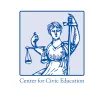Take a look inside 4 images
Center for Civic Education
Pros: Multimedia gems and thought-provoking questions bring some standout lesson plans to life for K-12 students.
Cons: The lesson plans' quality varies widely; some features only work with a school-based or teacher-led subscription.
Bottom Line: There's some great content here amidst some so-so tie-ins to a textbook series; take a look and find a few nice tools to drop into your year.
If your school uses textbooks by this publisher, you're in luck: Have your students download the free app to their devices to enrich and extend their experience with the site. Have students use the free resources like the "We the People Resource Center" to create their own vocabulary lists of critical words to know about voting, democracy, and citizenship. Have students comb through the authors' claims in the readings and PDF copies of the chapters. Talk through the questions in the included lesson plans, and have them consider discussion questions in class or as short essay questions for homework.
The Center for Civic Engagement is a nonprofit, nonpartisan organization that seeks to promote an "enlightened, responsible citizenry" through education about civics and the democratic process. The Center publishes a series of textbooks for K-12 classrooms that serve as supplements to social studies classes or stand-alone textbooks for a high school government or civics class. The website features extensive resources to supplement those textbooks, from downloadable ebooks that extend the textbook experience (if you've already bought the real-life book) to lesson plans and teacher guides that help teachers tailor the books to their students' and classrooms' needs. The Center also hosts a variety of professional development opportunities and trainings for schools, from a School Violence Prevention Demonstration Program to the "Citizens, Not Spectators" program which seeks to boost young voter participation.
The site is divided into Programs (a list of the Center's initiatives), Community (where students and teachers can link to reference info and PD opportunities), Resources (with links to textbook supplements and stand-alone lesson plans), Media (a gallery of some short videos and newsletters), and About (with info about the organization itself). The site also includes links to Donate (to contribute to the nonprofit), Shop (to buy textbooks and supplemental materials), or Subscribe (to the Center's newsletter).
Click the "Lesson Plans" icon at the bottom right of the homepage or select the same option from the "Resources" drop-down menu at the top of the page; that's the best bet for teachers. These lessons are nicely aligned with holidays and observances (like a Presidents' Day section and a Black History Month section), nicely cueing teachers to useful times of year to plug these lessons into their curriculum. The Lesson Plans vary in quality and complexity: Some, like the "Citizens, Not Spectators" content on voting, is especially extensive, with 3-day, 5-day, and extended lesson plans available for the fall or spring election cycles. All elements of this section are extra-detailed and good for all grade levels. The Black History Month section is dense but looks dated, and some students (and their teachers) might be underwhelmed by the format. Other lesson plans are interesting but less detailed; the Presidents' Day section focuses on four presidents, comparing them head to head on two key concepts: their contributions to American constitutionalism and citizenship (Washington versus Madison) and their use of executive power (Lincoln versus Reagan). Other lesson plans are less strong, though; some are just PDFs of the publisher's book chapter plus a few worksheets; as you use the site, pick and choose to make sure the lessons you find are on the rich side, not the slim side.
Additionally, the "We the People Resource Center" is also a great resource for students: While it's technically a companion website for the third edition of the Center's textbook of the same name, it's also a good-but-dated resource website for exploring terms and concepts related to American democracy and citizenship. Overall, this isn't the slickest website, and it's likely most useful in classrooms where the accompanying textbooks are already in use. But if you're looking for some stand-alone lessons on the voting process or the constitution, this site is definitely worth a look.











